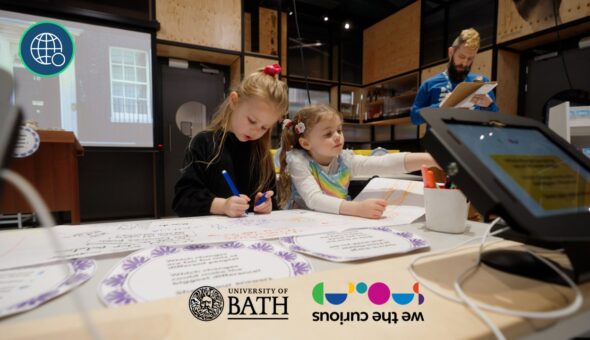In twenty unbroken years of supervising PhD students at the University of Bath I have had always to be conscious of the recruitment challenge: to simultaneously identify both a student with the innate capability to gain a higher research degree, and the funding which will support the student in their studies. It has been very rare that both of these have been easy. Of course, there are also additional challenges: finding the resources required for the research that the student will do (my students can only work alongside funded projects) and then actually supervising the student through the various stages leading to submission and eventually award of their PhD. These have all caused me concern on numerous occasions, but having trained a generation of doctoral graduates, and having them understand so many things as a result of our interactions is a tremendous reward.
The recruitment challenge points to the difficulty which we face as an institution as we aim to increase our number of doctoral students. For much of our academic population, doctoral students means PhD students, and indeed growing our numbers of PhD students will help us to achieve one of our other objectives which is to grow our research power. So, increasing the total number of PhD students that we have registered at the University makes a lot of sense. To do that, we need to attract more top-quality students to want to come to study here, in research areas which are appropriately resourced, and at the same time identify the means to finance their studies. Broadly, students are funded either by the taxpayer (for example, through Doctoral Training Accounts or Doctoral Training Centres/Programmes, or at present, indirectly, through Europe), by the University (through a University Research Studentship), are self-funded (by gaining their own funding from e.g. a foreign government), or are funded by a third party (when an individual, business or organisation funds the student through the University, typically either as a part of a research project or for philanthropic purposes.) Different rules apply and various combinations of funding are possible, leading to a complex funding landscape. The challenge of increasing the numbers of students on other forms of doctorate - for example, the professional doctorate - is distinct, although it has some common elements.
I am confident that as we enhance the quality of our research, the experience of our PGR students, and the quality of our graduates, then the University of Bath will become a more attractive place for PGR studies. More students will wish to come here, and we will further improve the quality of our student intake. That leaves the second part of the challenge - how to fund the increased number. We can and should hope to grow our nationally-funded studentship base. There will be opportunities to establish new Training Centres, and there may be new opportunities associated with Brexit (for all we know at present!). These routes could provide opportunities for modest growth in home student numbers. The University already invests more in University Research Studentships than our competitors, and increasing this funding is a not a sustainable route to PGR growth. The remaining funding routes will benefit from the feedback loop resulting from simply doing better. An improving reputation for our research and our doctoral provision - for the quality of our graduates, the skills that they acquire during their studies, their employability, and the quality of the research that they produce here at Bath - will improve our prospects of attracting funding either through funded students "choosing Bath" or through funders deciding that the University is the best place for their investment. This feedback loop is the way that we should be aiming to grow our PGR student base in the medium term. It is open-ended and directly linked to our performance. It is also long-term and will be hard work. But on the other hand, improving the quality of our research and the experience of our PGR students is what we plan to do anyway, and so if we get that right, the growth will naturally follow.


